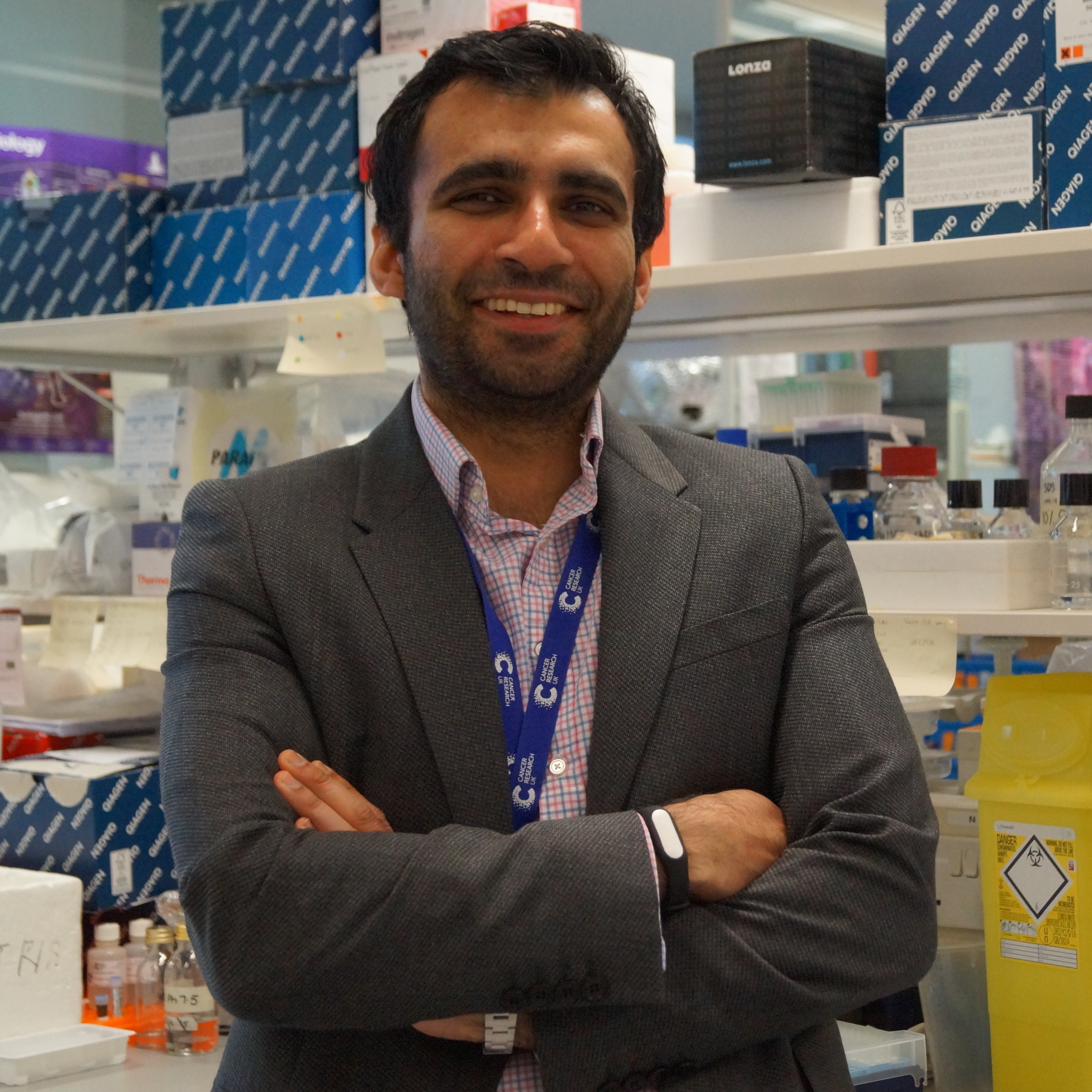
Starter Grant for Clinical Lecturers awardee
University of Glasgow
Identification of prostate cancer driver genes by a transposon-based insertional mutagenesis screen in Pten mutant mice
To celebrate the 10 year anniversary of the Starter Grants for Clinical Lecturers scheme we are pleased to feature case studies of past and present Starter Grant awardees. Dr Imran Ahmad was awarded a Starter Grant for Clinical Lecturers in 2011. Here he explains how his award enabled him to continue his research post-PhD and apply for further funding. He also highlights some of the main achievements and challenges of his research career so far.
Can you give us an overview of your research interests?
As an Honorary Consultant Urological and Robotic Surgeon based at the Queen Elizabeth University Hospital in Glasgow, I currently perform robotic surgery for localised/locally advanced prostate and bladder cancer. My current research interest is in understanding the mechanisms of treatment-resistance in advanced prostate cancer. Work in my laboratory uses state-of-the-art in vivo models in conjunction with patient samples to interrogate the disease processes in advanced and treatment-resistant prostate cancer. This work will help to provide information on drivers of prostate cancer progression and identify novel biomarkers of disease and/or drug targets to treat the disease.
What was the impact of your Starter Grant?
I was able to use my Starter Grant to continue funding my research during my return to full time higher surgical training post-PhD and to specifically investigate novel oncogenes and tumour suppressor genes that have a role in prostate carcinogenesis. It allowed me to generate the pilot data to apply for my CRUK Clinician Scientist Fellowship. The impact of the Starter Grant on my research career has been immeasurable, without it I could not have continued my experiments post-PhD.
What are the challenges you face as a clinical academic?
The biggest challenges involve time management and that the clinical work takes up a lot of time, often to the detriment of one’s research programme. Attending the Academy’s Spring Meetings (now CATAC) was invaluable for networking and learning that all clinical academics are in the same boat. When I started as a Consultant and Senior Lecturer I found myself quickly being the sole trained robotic surgeon in the country, at the same time as setting up my lab at the Beatson Institute. As a surgeon, it is impossible to limit clinical work to only one specialist clinic a month, as it is often expected. It needs careful time management and the ability to work within teams.
What’s next for you and your research?
I aim to continue producing high quality research whilst balancing a busy tertiary NHS cancer service. I hope to apply for a CRUK Senior Clinical Fellowship over the next few years.
Research highlights
- EAU Prostate Cancer Research Award in 2013
- CRUK Clinician Scientist Fellowship in 2016
- Chairman’s Award from NHS Glasgow in 2017